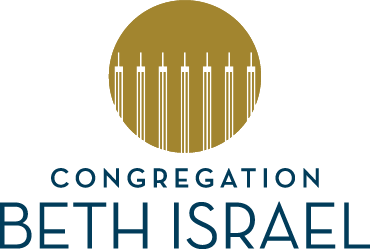“Unmask the Conversations that Heal”

“Unmask the Conversations that Heal”
From the desk of Rabbi David Lyon
We react in various and multiple ways to the news. Sometimes, we come to the same conclusions and sometimes we misunderstand each other even when good intentions are meant. So, it disappoints me that I received an anonymous letter, unsigned and without a return address, about recent events. It wasn’t an anti-Semitic letter or a bigoted note. Instead, it was someone who was unhappy with a suggestion that I made after the death of George Floyd, which I didn’t fulfill anyway.
In blogs, special letters and sermons on COVID-19, systemic racism, and Jewish values, my effort, and my colleagues’ in their own sermons, is always to find the best way to teach and inspire while remaining true to Jewish values and outlooks. Sometimes, we even get it right. From the flow of emails and other signed letters it would seem that we’re doing a fairly good job to identify meaning and reasonableness in the midst of confusion and hot-headedness. Though I have the privilege of the pulpit, it doesn’t mean that it’s my way or the highway. Instead, genuine efforts to go deeply into our tradition and derive meaning for unique and difficult times is exactly what we need Torah and its teachings to do. Some say that Torah should even “disturb” us out of our complacency in order to strive towards greater justice, mercy and love.
This past week, a Temple member came to my office to visit with me after reading my last blog. Wearing gloves and masks, we sat far apart from each other but not without genuine interest in each other’s words. He spoke directly and passionately about his concerns for our society and ways to make a difference. His candidness and honesty were very helpful to me. His points validated my conclusions but also urged me in new directions, too. His name will remain anonymous to you, but it isn’t anonymous to me. His willingness to email me, visit with me, and talk is a great example of what we must do more, together. In-person, by phone and Zoom multiply the ways we can enter the dialogues that are necessary for all of us in these tumultuous times. I’ve had conversations with others about anxiety since COVID-19, but we can also talk about racism, bigotry and anti-Semitism.
Days after the funeral for George Floyd, I spoke on Shabbat. Standing before the camera at home, I spoke about the helpful and healing steps we need to take and how we might take them as a congregation. I also promised to seek your input before committing you to a social justice agenda. So, I thank the gentleman who shared time with me; and, I urge the person who wrote an anonymous letter to make himself or herself known to me. I’d like to be able to say, “I’m listening,” and, “If I erred, then let me apologize before we begin again, together.”
As days and weeks unfold since the death of George Floyd, let’s enter a time of dialogue and not retreat; let’s listen and be educated and not turn our backs and refuse to hear; and, let’s be a strong Jewish community that has much to offer and not like a divided family that loses its way.
While COVID-19 continues to swirl around us, let’s enter Shabbat with a shared hope that this day will be for us a time of rest and peace. For me this week, Shabbat couldn’t come soon enough and the mitzvah to rest will not be wasted on me and my family.
Shabbat Shalom.
![]()
